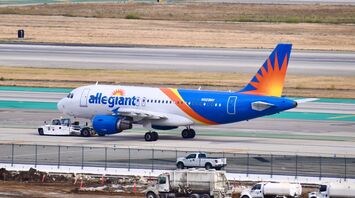Los Angeles International Airport Officials Confiscate Over 4,000 Illegal Wildlife Contraband

In a significant crackdown on wildlife trafficking, officials at Los Angeles International Airport (LAX) have confiscated over 4,000 illegal wildlife items in recent months. This operation, conducted by US Customs and Border Protection (CBP) officers and agriculture specialists in collaboration with the US Fish and Wildlife Service (USFWS), highlights the scale of wildlife smuggling at one of the busiest airports in the United States.
The seized items, which include crocodile skulls, kangaroo meat, and butterflies, violate numerous wildlife protection laws and international conventions on endangered species. These products have arrived from at least eight countries, including Australia, China, Mexico, and Thailand, and were intended for distribution across the United States.
Since the beginning of the fiscal year on October 1, 2023, CBP has detained 4,227 animal and plant items at LAX's mail facility. These illegal shipments were concealed in individual air mail packages and intercepted before they could be distributed to various addresses within the country. Cheryl M. Davies, CBP Director of Field Operations in Los Angeles, emphasized the critical role of agriculture specialists in combating wildlife trafficking, citing their expertise and dedication in identifying and seizing contraband.
The range of confiscated items is extensive, encompassing belts and wallets made from animal skins, taxidermy baby crocodiles, turtle skins, peacock feathers, and even elephant toenails. The illegal trade of these products is considered one of the most profitable natural resource crimes, driven by demands for exotic pets, fashion items, traditional medicines, and food.
Andrew H. Douglas, CBP Port Director at LAX, highlighted the lucrative nature of wildlife trafficking and its impact on global biodiversity. The USFWS Office of Law Enforcement, responsible for regulating international wildlife movements, works tirelessly to prevent illegal shipments and protect endangered species. Edward Grace, Assistant Director of the USFWS Office of Law Enforcement, praised the Wildlife Inspection Program for its meticulous efforts in safeguarding wildlife.
Travelers are reminded to be aware of wildlife conservation regulations when abroad. Many wildlife products available for purchase in other countries are illegal to import into the United States. Awareness and adherence to these regulations are crucial in the fight against the unlawful exploitation of natural resources.
This latest operation at LAX underscores the ongoing efforts by US authorities to curb wildlife smuggling and protect endangered species from illegal trade.



















